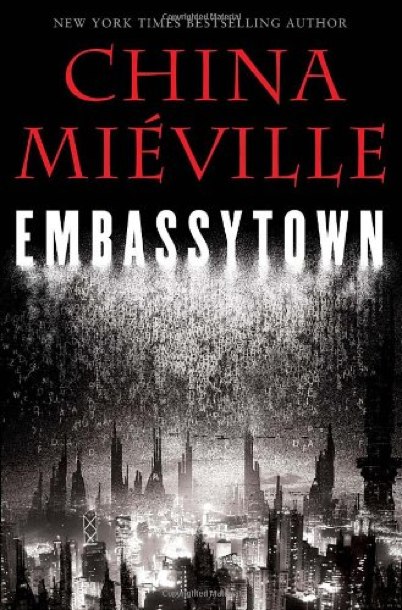Embassytown
Before the humans came, we did not speak so much of certain things. Before the humans came, we did not speak so much.
These are the crucial lines of Embassytown, and it is representative of Miéville’s accomplishment that such an enigmatic and unlyrical statement should come to mean so much.
Embassytown addresses an old challenge of science fiction: how can we talk about (and with) people who don’t think like us? The Arieki speak a language the requires two voices. For Arieki, thinking and speaking are inseparable: they literally say what they think. (This wouldn't work for humans, because humans think many things at once; the Arieki have a unicameral mind.) Arieki cannot say things they do not believe. This has obvious evolutionary advantages; if Joe says, “there are tasty sheep over the hill,” you know that Joe is telling you what he believes and not luring you into a trap. Disadvantages are obvious as well; Arieki cannot reason counterfactually. The simile is the latest in Arieki technology, and Arieki construct monuments or broadcast staged scenes in order to create new similes with which to think.
In fact, our narrator is a simile: she is “the girl who ate what was given to her.”
It’s a complex world, executed with Miéville’s usual flair, and also with his customary reliance on places more interesting than people.
